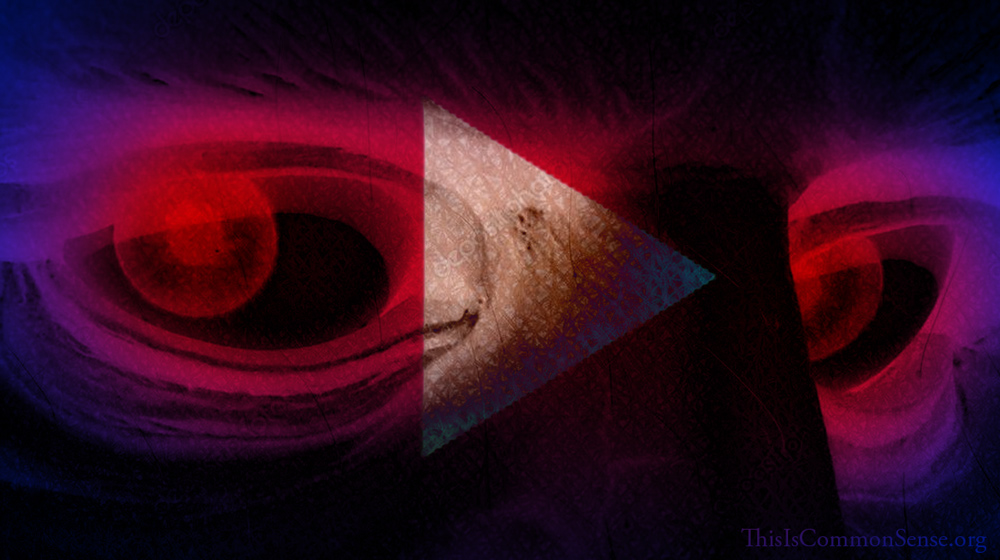The speech-repressing Chinese government and the speech-repressing tech firm Google are apparently taking cues from each other.
Busy Google unit YouTube has been working overtime to cripple the YouTube channel China Uncensored, which is too brutal in its criticism of the Chinazi government.
YouTube has demonetized the channel’s latest video, “YouTube Helps Cover Up China’s Atrocities.” According to channel publisher America Uncovered LLC, the videos that tend to get penalized are those with footage “that makes the Communist Party look bad.”
Google often does much more to repress speech than flag and demonetize. But Google doesn’t want to always be super-blatant. So China Uncensored is still a YouTube channel. For now.
In contrast, the Chinese government usually goes full Chinazi. Its latest project is a snitch app to help neighbors turn in neighbors for voicing “wrong” opinions.
It’s about correcting misinformation. China’s Cyberspace Administration says the app will help counter online statements that are “maliciously distorting, slandering and denying Party, national and military history in an attempt to confuse people’s thinking,”
Ah, disagreement, a.k.a. “misinformation,” the too-steep cost of freedom! And who alone is qualified to determine which information is correct?
“Whatever the Party holds to be the truth, is truth,” says Orwell’s O’Brien. “It is impossible to see reality except by looking through the eyes of the Party.”
Deviate from the party line about the party, the pandemic, an election, lack of elections, or anything else, and supposedly it’s right and just to muzzle you.
Wrong.
This is Common Sense. I’m Paul Jacob.
—
See all recent commentary
(simplified and organized)

5 replies on “The YouTubification of China”
“Chinazi” was kind of cute and novel the first couple hundred times. Now it just sounds dumb and makes a good column worse.
Thanks for the feedback. Sincerely. The “Chinazi” term is one I’ve gone back and forth on precisely because (1) it includes “nazi” in it — generally considered going too far — and (2) the terminology is itself quite important in this case.
Generally I don’t like cutesy re-name-ings. But I saw “Chinazi” scrawled all over Hong Kong when visiting there during the 2019 protests. And it dawned on me how appropriate the term really is — the CCP acts in many ways more like nazis or fascists than commies.
Here’s why the terminology is so important. China is ruled by the Chinese Communist Party, so it is considered a communist country. Right? Except it does not behave economically like a communist country, only politically so. And I think folks instinctively get this, knowing that China is not really communist. So if it is attacked as communist or the CCP label applied, there is a disconnect over what the Chinese state is really all about, which I think creates a drag on intellectuals, activists, others, engaging on the matter.
My hope was that the term Chinazi would better describe the Chinese regime in reality as well as perhaps signal the urgency of a rising totalitarian power. Sounds like you are one solid vote for me going back to the drawing board. But I’ll keep the polls open a little bit longer.
My immediate takeaway is to use the term less and think hard about it when used — whether it will strategically accomplish the goal I note above without turning off readers, which never helps achieve the goal.
I’ve had the same concerns with the term “totalitarian,” too, which of course doesn’t have the same recoil as nazi. My concern is whether people receive it with a connotation of being unreal, like a dystopian novel. And what is happening is all too real. Anyway, I welcome any thoughts you have on that term as well.
I understand your reasoning, and tend to agree with it as far as meaning, although I’d watch out for falling into a “that wasn’t REAL communism” trap (remember, the Soviets did “state capitalism” early on too, and whether they called it that or not later, they certainly didn’t develop the “classless society” that Marx predicted).
My problem with it is that it packs a punch once or twice, then starts feeling like one of those go-to expressions that becomes more irritating than enlightening (the one I’m thinking of is from about 15 years ago — one person on the right said something about being “stuck on stupid,” and next thing you know, every supposed conservative was using it every other sentence … and it got really annoying, really quick).
On the other hand:
1) I read every word you write (and I apologize for usually only commenting to gripe — I’ll try to give you more of the accolades you deserve going forward, too); presumably and unfortunately most people don’t, so “Chinazi” might be just a thing they notice and like but don’t keep noticing and getting tired of.
2) I guess it wouldn’t be a BAD thing if I suddenly started hearing “Chinazi” everywhere. Then I could tell the people using it that I know the guy who popularized it!
I’m curious to see how the lawsuits against google, et.al. will turn out.
Hoping for good results.
OOPS That was supposed to be the lawsuits by the states…